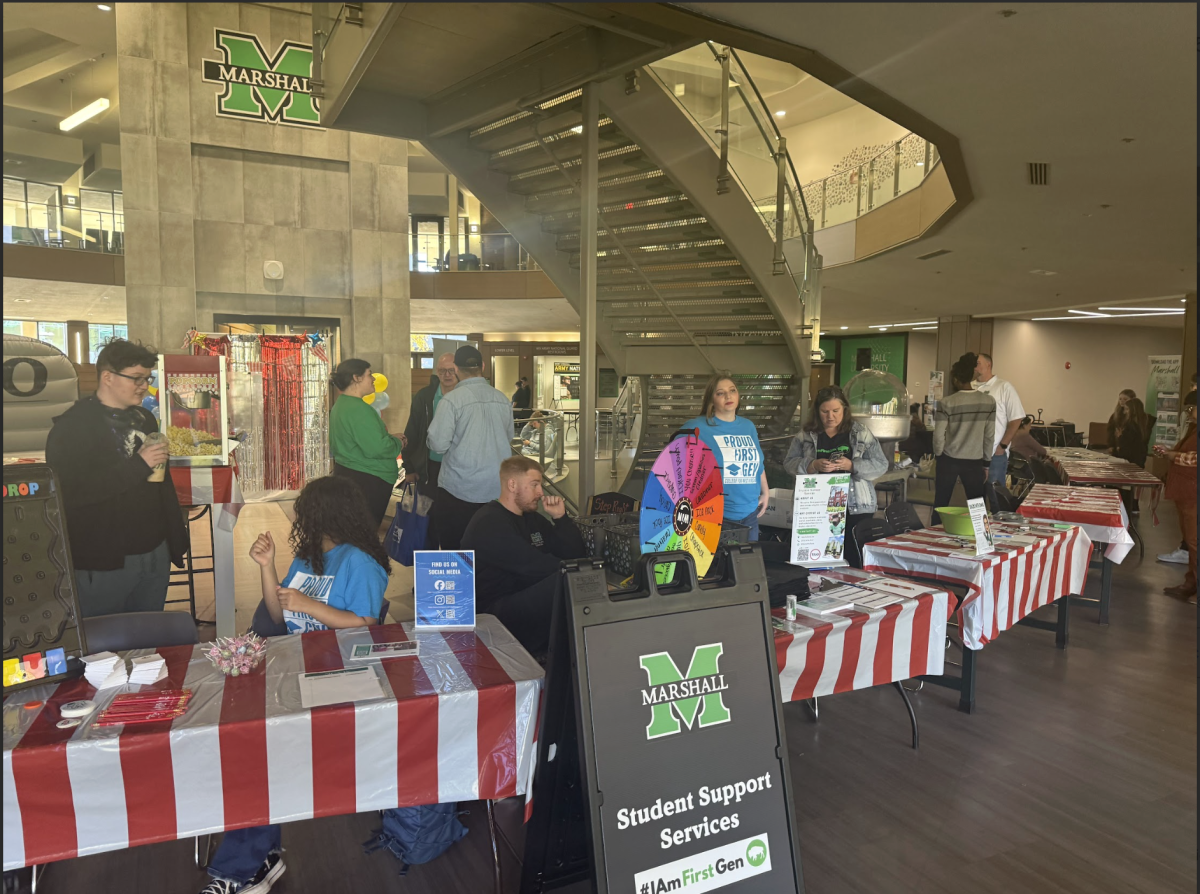Craft Your Calm, hosted by the Marshall Counseling Center, targets anxiety and stress relief through creativity.
Mental health specialists Steph Fonseca and Michele Sigler offered insight into the inspiration behind the event and how college students can benefit.
“We came up with this as a creative outlet,” Sigler said. “It’s hands-on and teaching them how to use the items we make to reduce their anxiety.”
Group settings, Fonseca said, allow for students not to feel as if the attention is on them because that can cause anxiety in itself.
“A lot of times when we have anxiety, you feel like you’re out of control,” Fonseca said. “The ability to do things with your hands has been proven to relax the brain and release endorphins, which is really good to calm anxiety down.”
Cultivated to calm the mind and body, the crafts include self-soothing boxes, bubble breathing exercises and emoji jars filled with positive affirmations.
Reconnecting to the five senses, Fonseca said, is essential in calming stress.
“Using things that you can physically touch and see to distract your brain is sometimes beneficial enough to where it suits you to recompose yourself,” she said.
The focus, she said, is on bringing the brain down from a state of fight, flight or freeze mode.
“People with anxiety have a tendency to zone out, and using these items kind of brings you back to the present and helps you to focus on that and in turn helps to reduce anxiety,” Sigler said.
Both Sigler and Fonseca agree counseling is a great way for students to check in on their mental health.
Sigler said she always begins her sessions by saying, “This is a safe place,” and telling her students, “There’s nothing you can do or say that will anger me, disappoint me, upset me or make me judge you.”
The Counseling Center encourages students to seek out the proper mental health resources when needed.
However, therapy isn’t the only way to seek help.
“We have a lot of groups going on right now that are kind of like workshops and quick ways to find skills,” Fonseca said.
“If sitting through lots of therapy sessions is too much,” she said, “they can just have the skills and see if that can benefit them as well.”
Holly Belmont can be contacted at belmont9@marshall.edu.




















